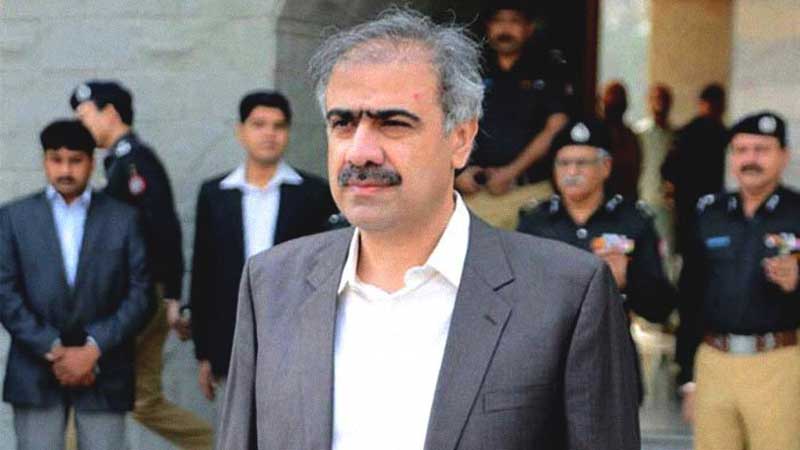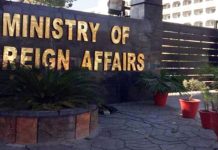
CM Buzdar had invited Sindh lawmakers to visit Punjab barrages in a step to resolve the issue raised by the province regarding the water allocation.
Sindh Irrigation Minister Sohail Anwar Siyal said in a statement that the provincial lawmakers will not visit barrages in Punjab. He said that the provincial government has complained and protested against the Indus River System Authority (IRSA), hence there is no need to visit Punjab.
Siyal said that Punjab chief minister should give a reply over releasing water in Chashma-Jhelum Link Canal and Taunsa-Panjnad (TP) Link Canal. He was of the view that the link canals were illegally opened in Punjab, causing a financial loss of up to $3 billion to Sindh. He added that Sindh province must be given 33 million acre-feet (MAF) of water this season under the designated allocation.
Siyal complained about getting a reduced share of water. He also invited experts from Punjab to visit Sindh for ascertaining the facts.
Meanwhile, Minister of State for Information and Broadcasting Farrukh Habib on Monday lashed out at the past rulers over their outright failure to execute projects for additional water reservoirs which led to substantive reduction of 27 per cent in storage capacity of the country.
Addressing a press conference, he said past water storage capacity of over 15 MAF had now substantially been reduced to current 13 Million Acre Feet (MAF).
Flanked by Punjab’s Minister for Irrigation Muhammad Mohsin Khan Leghari and Opposition Leader in Sindh Assembly Haleem Adil Sheikh, Farrukh said Mohmand Dam project, first conceived in 1963, lingered on for decades without any solid progress. He said it is definitely an act of ‘criminal negligence’ on the part of past rulers which virtually put the agriculture at stake.
Now Prime Minister Imran Khan has a vision to go for ‘Decade of Dams’, banishing the ‘Decades of Darkness’ forever in the country, he said. During the next decade, there will be 10 additional dams, eventually doubling the water storage capacity of the country, he said, adding that it would not only avert flash floods, but help boost the supply of water in the country.
Farrukh said Prime Minister Imran Khan was passionately working to resolve water woes in the country that might have been dealt by the previous rulers. On specific water issues between Punjab and Sindh, he said Prime Minister Imran Khan, being a statesman, desired equitable distribution among four provinces.
He said the prime minister was eager to facilitate all provinces on pertinent issues including water, adding the telemetry system would soon be installed to ensure judicious water distribution among all federating units. He said Prime Minister Imran Khan is ready to facilitate all the provinces on the water issue.
Taking over the presser, Punjab Minister for Irrigation Mohsin Leghari said that the provincial government cannot even think of depriving any farmer of their rights. He said the water was dispersed with a gap of 10 days, and in April, Punjab faced a 49% water shortage, while Sindh’s shortage stood at 9%. Currently, Punjab is facing a shortage of 22% and Sindh 17%, he added.
Leghari said Punjab’s total water accumulation had risen by 2% after the resource came in from Koh-i-Sulaiman (Sulaiman Mountains).













